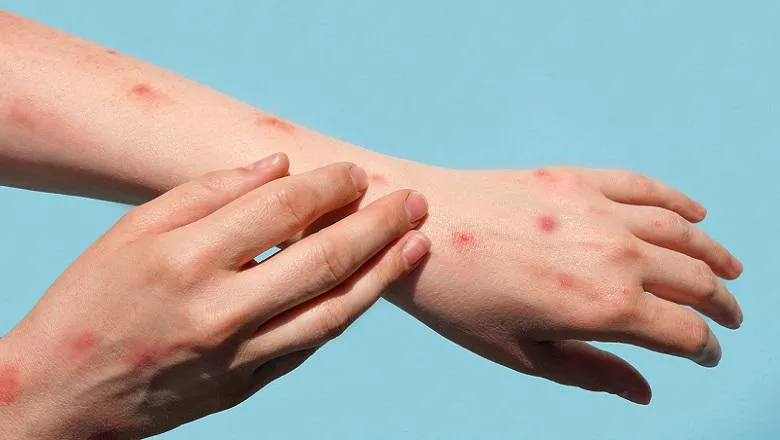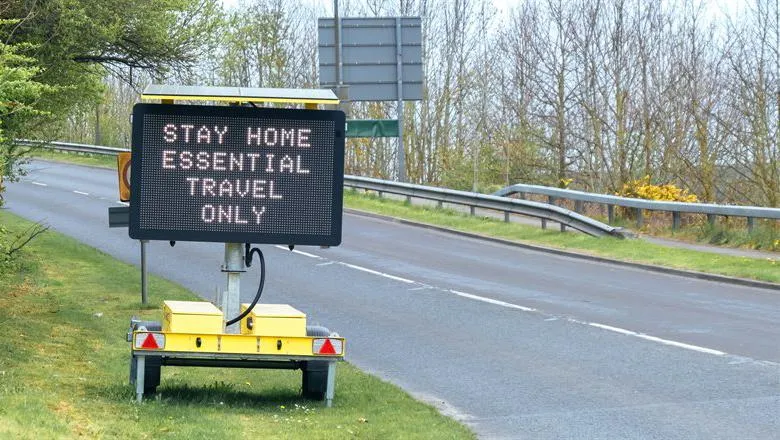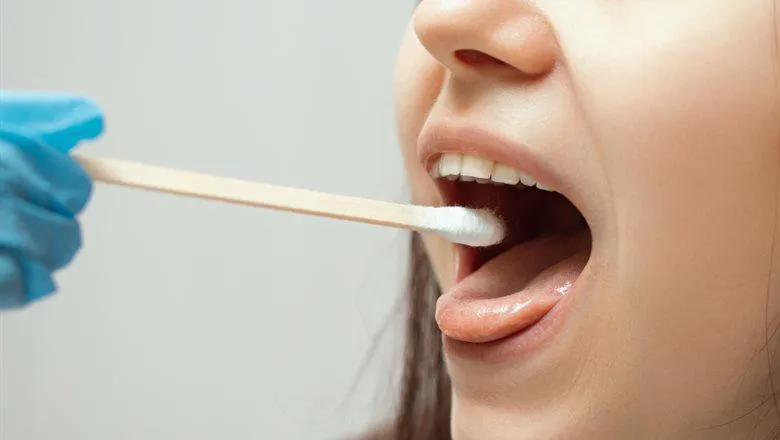
Professor James Rubin
Professor of Psychology & Emerging Health Risks
Research interests
- Psychology
Contact details
Biography
James has been a researcher at King’s College London since 1999. He specialises in understanding how people perceive potential health risks, and how those perceptions affect their behaviour and wellbeing. This work broadly encompasses two areas: why people attribute physical symptoms to possibly hazardous substances, and how best to support people who find themselves suddenly exposed to a health risk following a disaster or major public health incident. James has explored reactions to possible health risks including COVID-19, pandemic influenza, biological and chemical terrorism, the Fukushima nuclear meltdown, the polonium 210 incident, the Ebola outbreak, the Salisbury Novichok incident, mpox, episodes of major flooding across England, Wi-fi, mobile phone and police radio signals, chemical exposures, wind turbines, surgery, medication side-effects and more.
Research Interests
Research Interests
- Psychology as applied to health protection
- Health communication
- Risk perception
- Symptom perception
- Help seeking behaviour
- Emergency preparedness
- Vaccination uptake
- Adherence to prophylaxis
- Idiopathic environmental intolerance
- Nocebo effects
James is always happy to discuss PhD supervision on any of these areas. He has previously supervised doctorates relating to:
- attitudes towards vaccination in adolescents, parents, healthcare workers and the general public,
- vaccination uptake in South Sudan,
- symptoms attributed to the childhood flu vaccination,
- reducing the nocebo response,
- the social psychology of flooding,
- how best to communicate about emergency decontamination,
- how to encourage people to check themselves for ticks,
- if and how to communicate about nuclear terrorism,
- behavioural responses to power outage,
- responses to the COVID-19 pandemic,
- symptoms attributed to police radios.
Research Groups
James is the Director for the NIHR Health Protection Research Unit in Emergency Preparedness and Response which is a formal partnership between King’s College London and the UK Health Security Agency.
Expertise and Public Engagement
James is a member of several committees which provide advice to Government agencies. These focus on topics including: the provision of support to victims of terrorist attacks; the soil and environmental checks around Grenfell Tower; the risk from new and emerging viruses; the role of behavioural science in improving and protecting public health; and the assessment of risk in relation to major emergencies that might affect the UK in the future. During the COVID-19 pandemic, James was a regular participant in the UK Government’s Scientific Advisory Group for Emergencies and co-chaired its behavioural science subgroup (‘SPI-B’).
Research

Population Health @ King’s
Population Health expertise from across King's
News
Engaged and informed communities are more likely to adapt their behaviour during disease outbreaks
New research from a team led by Dr Louise Smith and Professor James Rubin from the Institute of Psychiatry, Psychology & Neuroscience (IoPPN) at King’s...

Opening windows for short periods of time could help prevent COVID-19 transmission
As the public begin to meet inside again, research shows that a quarter don’t open their windows despite knowing it can help reduce transmission.

Support needed to adhere to Test, Trace and Isolate
New analysis conducted by researchers at the NIHR Health Protection Research Unit (HPRU) in Emergency Preparedness and Response, King’s College London, UCL...

People who thought they'd had COVID-19 were less likely to follow April lockdown rules
New research from King’s College London reveals an individual’s beliefs about whether or not they’d had COVID-19 influenced how likely they were to follow...

King's Principal receives Knighthood
Professor Edward Byrne, President & Principal of King’s College London has been awarded a Knighthood in the Queen’s Birthday Honours

Effective test, trace and isolate needs better communication and support
New research led by King’s College London has shown that the majority of the UK public report an intention to carry out test, trace and isolate behaviours if...

Test, trace and isolate systems must consider human behaviour
Greater public awareness of symptoms, rapid testing, guarantees on confidentiality and measures to lessen the financial burden of quarantine are central to...

Better support may help people with COVID-19 symptoms to self-isolate
A new study led by King’s College London researchers has shown that during the UK lockdown period, people who received support from outside their home were...

Existing evidence suggests face coverings do not lead to false sense of security
Existing limited evidence suggests that wearing face coverings to protect against COVID-19 does not lead to a false sense of security and is unlikely to...

Features
King's contribution to coronavirus response
King's academics and researchers are supporting ongoing research and conversation addressing the global outbreak of novel coronavirus (COVID-19).

Spotlight
Understanding behaviour during crises
Over the past decade, King’s researchers have navigated the delicate but essential line between providing timely yet rigorous evidence in times of crises....

James developed and leads a multi-award winning 30-credit MSc module on the psychology of disaster response as part of our MSc in Mental Health Studies. He provides regular projects for the students on this course, gives guest lectures on several other postgraduate courses at King’s and elsewhere, is personal tutor for around 15 students a year, is a member of the PhD subcommittee for the Department of Psychological Medicine, and chairs the assessment sub-board for the MSc in Organisational Psychiatry and Psychology.
Research

Population Health @ King’s
Population Health expertise from across King's
News
Engaged and informed communities are more likely to adapt their behaviour during disease outbreaks
New research from a team led by Dr Louise Smith and Professor James Rubin from the Institute of Psychiatry, Psychology & Neuroscience (IoPPN) at King’s...

Opening windows for short periods of time could help prevent COVID-19 transmission
As the public begin to meet inside again, research shows that a quarter don’t open their windows despite knowing it can help reduce transmission.

Support needed to adhere to Test, Trace and Isolate
New analysis conducted by researchers at the NIHR Health Protection Research Unit (HPRU) in Emergency Preparedness and Response, King’s College London, UCL...

People who thought they'd had COVID-19 were less likely to follow April lockdown rules
New research from King’s College London reveals an individual’s beliefs about whether or not they’d had COVID-19 influenced how likely they were to follow...

King's Principal receives Knighthood
Professor Edward Byrne, President & Principal of King’s College London has been awarded a Knighthood in the Queen’s Birthday Honours

Effective test, trace and isolate needs better communication and support
New research led by King’s College London has shown that the majority of the UK public report an intention to carry out test, trace and isolate behaviours if...

Test, trace and isolate systems must consider human behaviour
Greater public awareness of symptoms, rapid testing, guarantees on confidentiality and measures to lessen the financial burden of quarantine are central to...

Better support may help people with COVID-19 symptoms to self-isolate
A new study led by King’s College London researchers has shown that during the UK lockdown period, people who received support from outside their home were...

Existing evidence suggests face coverings do not lead to false sense of security
Existing limited evidence suggests that wearing face coverings to protect against COVID-19 does not lead to a false sense of security and is unlikely to...

Features
King's contribution to coronavirus response
King's academics and researchers are supporting ongoing research and conversation addressing the global outbreak of novel coronavirus (COVID-19).

Spotlight
Understanding behaviour during crises
Over the past decade, King’s researchers have navigated the delicate but essential line between providing timely yet rigorous evidence in times of crises....

James developed and leads a multi-award winning 30-credit MSc module on the psychology of disaster response as part of our MSc in Mental Health Studies. He provides regular projects for the students on this course, gives guest lectures on several other postgraduate courses at King’s and elsewhere, is personal tutor for around 15 students a year, is a member of the PhD subcommittee for the Department of Psychological Medicine, and chairs the assessment sub-board for the MSc in Organisational Psychiatry and Psychology.
